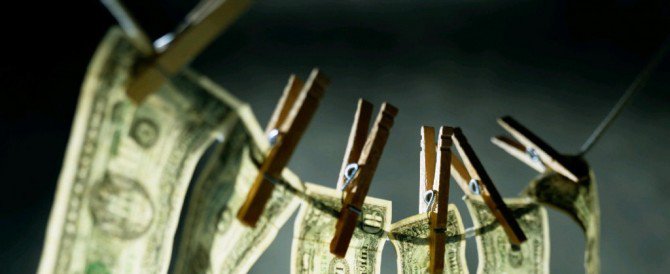The U.S. Treasury is in the process of taking a big step toward making it harder for corrupt politicians, drug traffickers and terrorists to make use of the U.S. financial system, by forcing banks to know who their customers actually are.
This is something we have been advocating for five years. Treasury recently released a proposed rule and is seeking comment until October 3, 2014. There’s info on how to do that here.
It’s worth explaining precisely what we think the problem is, and what the rule should look like if it is going to do its job properly.
Right now, there is a gaping hole in U.S. law that enables corrupt individuals and other criminals to easily hide their identity behind anonymous companies. This allows them to launder dirty money through U.S. banks. The problem is twofold:
- U.S. banks, with few exceptions, are not required to identify the real, or “beneficial,” owner of companies that open accounts. This means they are not doing nearly enough to identify the actual human that the money they are handling belongs to, or what might have been done to obtain it;
- It is perfectly legal to set up a company in the U.S. without disclosing who ultimately owns it. This means that there is too little beneficial ownership information available to bankers or in the public domain. (We’re campaigning on this too here.)
Treasury’s rule would tackle the first of these issues, by forcing banks to identify and verify the real, ultimate owners of their corporate account clients. Unless a bank does this, it cannot meaningfully assess the risk that somebody is trying to launder the proceeds of crime.

Like the anti-money laundering wonks we are, we’ll be going through the proposed rule in detail and letting Treasury know what needs to be changed to make it really work. But on our first reading, the definition of beneficial ownership is still lacking.
To have the greatest impact, the final rule must include a stronger definition of beneficial ownership that:
- Ensures each beneficial owner is a real person and not a nominee (someone who has lent or sold their identity to the real owner);
- Includes individuals who control a company through unofficial means, such as trusts or power-of-attorney arrangements, outside of legal ownership or acting as a corporate officer;
- Has no specific percentage threshold for legal ownership. This would provide money launderers with a blueprint for how to structure companies in order to avoid detection (i.e., under a 25% threshold, if five people own equal shares, none need to report).
The proposed rule must also be strengthened to:
- Require financial institutions to turn away business if they are unable to identify a beneficial owner of the account;
- Apply retroactively to all legal entity accounts, not just to new accounts; and
- Oblige financial institutions to verify that the names of the beneficial owners provided by the company are in fact the company’s beneficial owners.
A rule like this would significantly strengthen the U.S. anti-money laundering framework and bring the U.S. in line with countries around the world.
The U.S. is way behind on this issue. All members of the European Union and many other financial centers, including Switzerland, Hong Kong and Singapore, already require their financial institutions to collect information about the beneficial owners of their clients.
The U.S. has known about this loophole in U.S. policy for many years. It allows those behind some of the worst problems of our time to get away with their crimes – as the spate of recent scandals with banks involved in laundering drug money, sanctions busting, tax evasion and other illegal behavior illustrates. To turn the tap of dirty money flowing into U.S. banks off, Treasury must act swiftly and issue a strong rule before the end of the year.